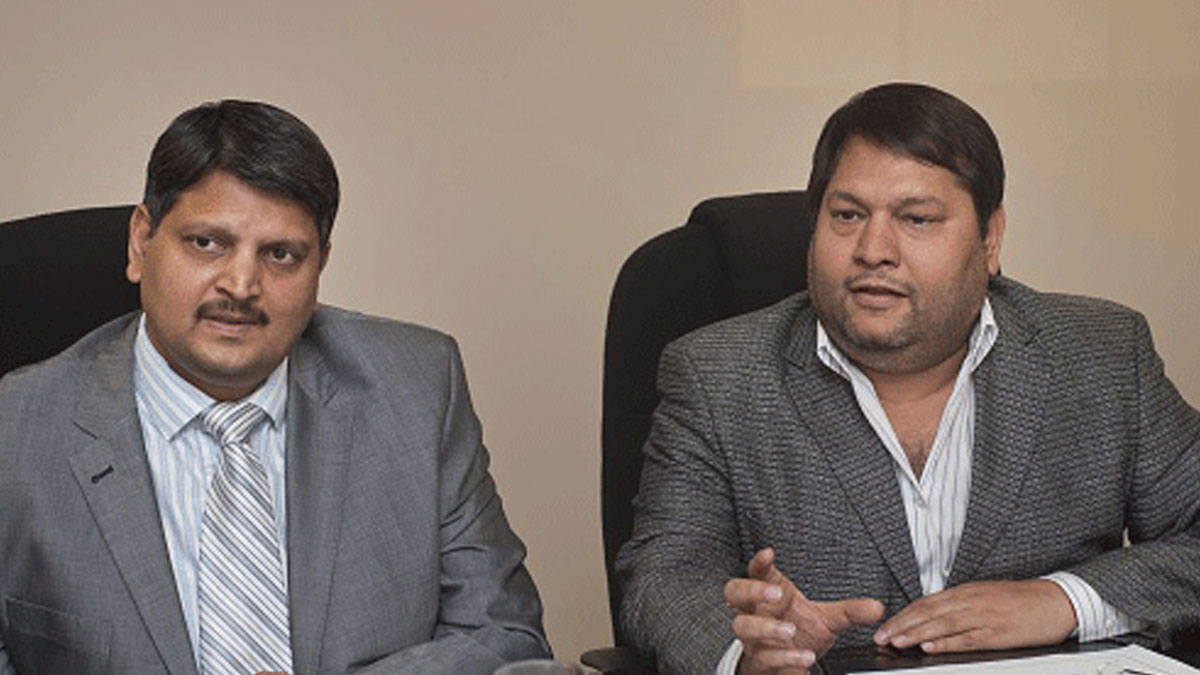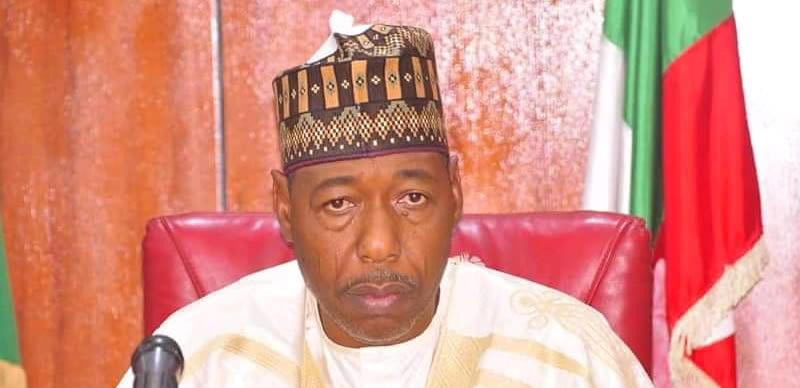Crime
Wealthy Gupta Brothers Arrested in UAE

By Derrick Bangura
Two brothers from the wealthy Gupta family have been arrested in the United Arab Emirates, the South African government has announced.
Atul and Rajesh Gupta are accused in South Africa of profiting from their close links with former president Jacob Zuma and exerting unfair influence.
Extradition talks are taking place with the UAE, South African officials say.
The brothers fled South Africa after a judicial commission began probing their involvement in corruption in 2018.
They are accused of paying financial bribes in order to win lucrative state contracts and influence powerful government appointments.
The family moved from India to South Africa in 1993. They also face accusations of money laundering in India, where tax officials raided properties belonging to them in 2018 in multiple cities, including their company office in capital Delhi.
Many of the most serious corruption allegations levelled against the Indian-born brothers focus on their relationship with Jacob Zuma, who was president of South Africa from 2009 until he was forced to step down amid a storm of corruption allegations nine years later.
The Gupta family is accused of using their close links with Mr Zuma to wield enormous political power across all levels of South African government – winning business contracts, influencing high-profile government appointments and misappropriating state funds.
Mr Zuma and the Guptas deny any wrongdoing.
After the brothers fled the country, South Africa negotiated an extradition treaty with the UAE in 2021.
President Cyril Ramaphosa’s government has said it hoped the agreement would lead to the return of the Guptas to face charges, but it was not immediately clear following the arrests whether the brothers will return to South Africa.
The Gupta family became so closely linked with Mr Zuma that a joint term was even coined for them – the Zuptas.
One of Mr Zuma’s wives, as well as a son and daughter, had positions working in senior roles for Gupta-controlled companies.
Many of the companies in the Gupta portfolio profited from lucrative contracts with government departments and state-owned corporations – where public officials say they were directly instructed by the family to take decisions that would advance the brothers’ business interests.
It is alleged that compliance was rewarded with money and promotion, while disobedience was punished with dismissal.
The list of public bodies accused of having been “captured” is extensive – the ministries of finance, natural resources and public enterprises, as well as agencies responsible for tax collection and communications, the state broadcaster SABC, the national carrier, South African Airways, the state-owned rail-freight operator and the energy giant Eskom – one of the largest utility companies on the planet.
A four-year investigation later published by the country’s top judge concluded that the wealthy brothers had become deeply embedded in the highest levels of government and Mr Zuma’s ruling African National Congress (ANC) party.
Reports published this year by investigators accuse the brothers of being linked to racketeering activity through the procurement of rail, ports and pipeline infrastructure.
Its authors also concluded that Mr Zuma “would do anything that the Guptas wanted him to do for them”.
Last year Mr Zuma was imprisoned for 15 months for refusing to testify before the same investigators. He was released on parole after serving two months of his sentence in jail.
Who are the Gupta brothers?
Ajay, Atul and Rajesh Gupta moved to South Africa from the Indian state of Uttar Pradesh in 1993, just after the fall of apartheid.
It is said that when Atul arrived to set up the family business Sahara Computers, he was amazed by the lack of red tape.
They grew the company to employ more than 10,000 people in South Africa, also developing financial interests in the mining, air travel, energy, technology and media sectors.
Atul Gupta said he met Mr Zuma before he became president “when he was a guest in one of Sahara’s annual functions”.
Crime
Police Foil Cult Initiation in Anambra, Arrest Six Suspects

The Anambra State Police Command has foiled a cult initiation ceremony in Nawfia, Njikoka Local Government Area of the state.
Spokesperson for the Command, SP Tochukwu Ikenga, disclosed this in a statement issued on Tuesday in Awka.
According to Ikenga, the operation was carried out by police operatives around 9:30am on June 15, leading to the arrest of six suspects at the scene.
Recovered during the raid were one Jojef pump action gun, two cartridges, and a golden-coloured Lexus SUV with registration number ATN 202 AE. Other items found include two cutlasses, two scissors, a cap bearing the inscription of the Supreme Vikings Confraternity, charms, and substances suspected to be hard drugs.
“They are currently undergoing police interrogation to get more insight into their modus operandi, after which the case will be charged to court on the conclusion of the investigations,” Ikenga stated.
The police spokesperson reassured residents of the command’s unwavering commitment to fighting cultism and other related crimes across the state.
Crime
Court remands 2 over alleged attempted murder

An Ikeja Magistrates’ Court, Lagos, on Wednesday, remanded two persons, Olaitan Fasasi and Kehinde Tobiloba in a correctional facility over alleged attempted murder.
Fasasi, 40, and Tobiloba, 26, whose addresses were not provided, are being charged with conspiracy, attempted murder and membership of a secret society.
The Magistrate, Mr L.A Owolabi, did not take the plea of the defendants for want of jurisdiction.
Owolabi directed the police to forward the case file to the Director of Public Prosecution for legal advice.
He thereafter adjourned the case until May 31 for mention.
The Prosecutor, Josephine Ikhayere, told the court that the defendants committed the offences at about 5.02p.m on Feb. 15, at Mushin, Lagos.
She said that Fasasi, Tobiloba and others now at large, attempted to commit murder by shooting at a resident, Alfred Ademola.
“They armed themselves with a locally made gun. They belong to Eiye Confraternity, a group proscribed by law,”, she said.
Ikhayere said that the offences contravened Sections 230(1) and 411 of the Criminal Law of Lagos State, 2012.
He said that the actions of the defendants also contravened Section 2(3)(a)(b)(c)(d) of the unlawful societies and Cultism Law of Lagos State Law.
Crime
Man jailed 3 months for stealing mobile phone

An Area Court in Jos, on Tuesday, sentenced one Jeptha John, to three months imprisonment for stealing a Redmi mobile phone valued at N165, 000.
The judge, Shawomi Bokkos, sentenced the John after he pleaded guilty to the offence.
The judge, however, gave the convict an option to pay N20, 000 fine and N50, 000 restitution to the complainant.
Bokkos said that if the convict defaulted in paying the restitution, three months should be added to his sentence to make it six months imprisonment.
Earlier, the police prosecutor, Insp Monday Dabit, told the court that the case was reported at the B Division Police Station, Jos, on Dec. 1, 2024, by Ms Nerat Danjuma.
He said that the complainant alleged that the defendant trespassed into her house and stole her mobile phone valued at N165, 000.
The prosecutor further told the court that the offence contravened the Plateau State Penal Code, Law of Northern Nigeria.
-

 Headlines4 years ago
Headlines4 years agoFacebook, Instagram Temporarily Allow Posts on Ukraine War Calling for Violence Against Invading Russians or Putin’s Death
-

 Headlines4 years ago
Headlines4 years agoNigeria, Other West African Countries Facing Worst Food Crisis in 10 Years, Aid Groups Say
-

 Foreign4 years ago
Foreign4 years agoNew York Consulate installs machines for 10-year passport
-

 News1 year ago
News1 year agoZero Trust Architecture in a Remote World: Securing the New Normal
-

 Entertainment3 years ago
Entertainment3 years agoPhyna emerges winner of Big Brother Naija Season 7
-

 Headlines2 years ago
Headlines2 years agoNigeria Customs modernisation project to check extortion of traders
-

 Entertainment2 years ago
Entertainment2 years agoMovie download platform, Netnaija, announces closure
-

 Economy2 years ago
Economy2 years agoWe generated N30.2 bn revenue in three months – Kano NCS Comptroller















